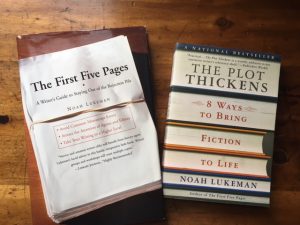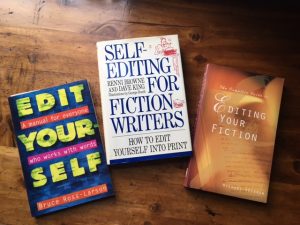Few writers do!
Noah Lukeman is my favorite guru on self-editing. He’s highly readable, clear, and interesting. But if you need some quick-and-dirty guidelines right now, here are a baker’s dozen.
1. Circle your modifiers and decide whether they’re really needed. Especially cut adverbs in favor of stronger verbs.
2. Avoid clichés. This is especially important in the narrative, but shouldn’t appear frequently in dialogue, either.
3. Refer to people as who, not that.
4. Beware repeated words or phrases, especially in close proximity. Check your word habits and “kill your darlings.”
5. Divide long, complex sentences into two or more shorter sentences—this is especially important in action scenes.
6. Minimize the use of really, very, and suddenly.
7. Make sure you know what your words mean. Check definitions
8. Avoid passive verbs, especially is, are, was, were, and -ing verbs.
9. Look for filler words or phrases that really don’t add anything, e.g., smiling, sighing, looking away, etc.
10. Don’t over-use exclamation points or ellipses. Never double punctuate. Get it?!
11. Be specific. Replace vague words like things, stuff, beautiful, etc.
12. Don’t have characters tell each other things just because the reader needs to know.
13. Don’t give the same speech quirks or movements to more than one character unless there is a specific reason to do so.
Read your work aloud—or better yet, have someone else read it aloud to you—and revisit every place that causes a stumble.
And maybe the most important suggestion: Find a good guide to self-editing. There are dozens out there.

